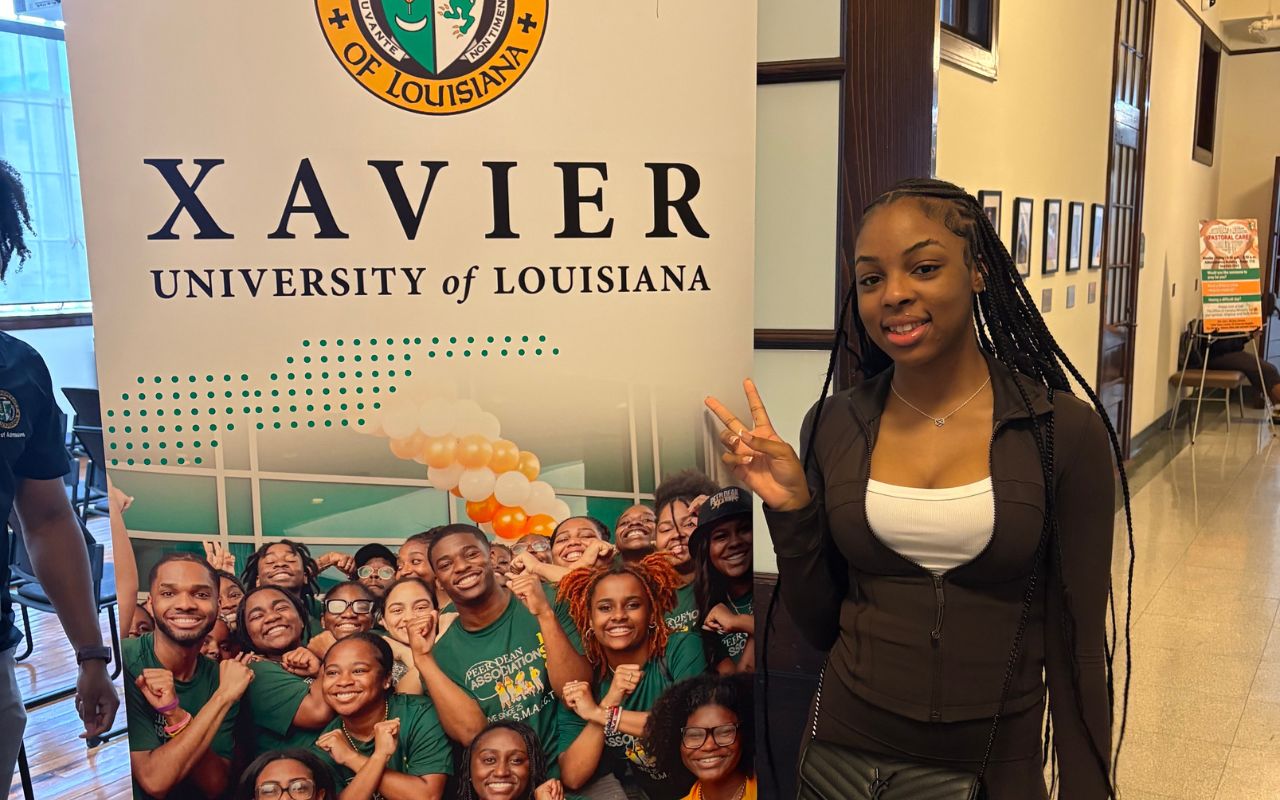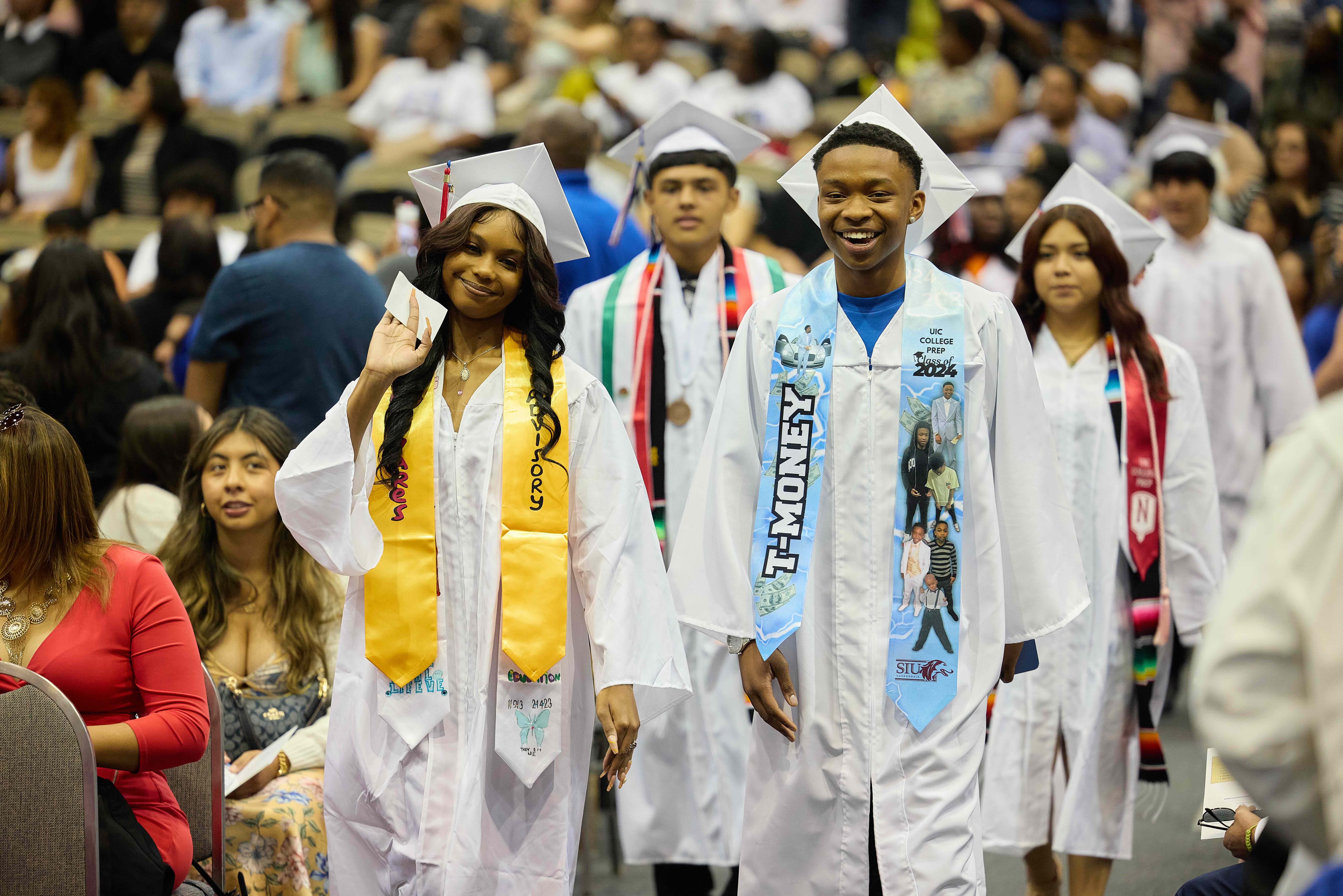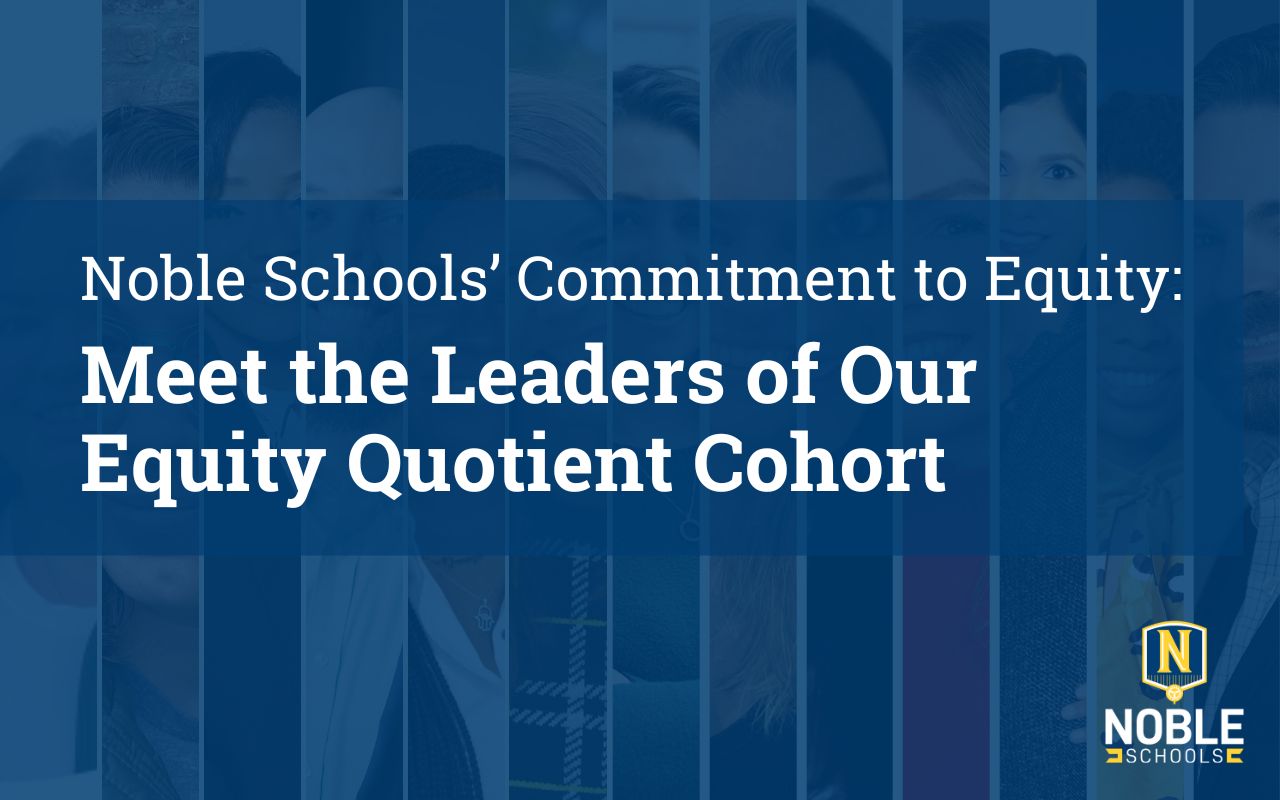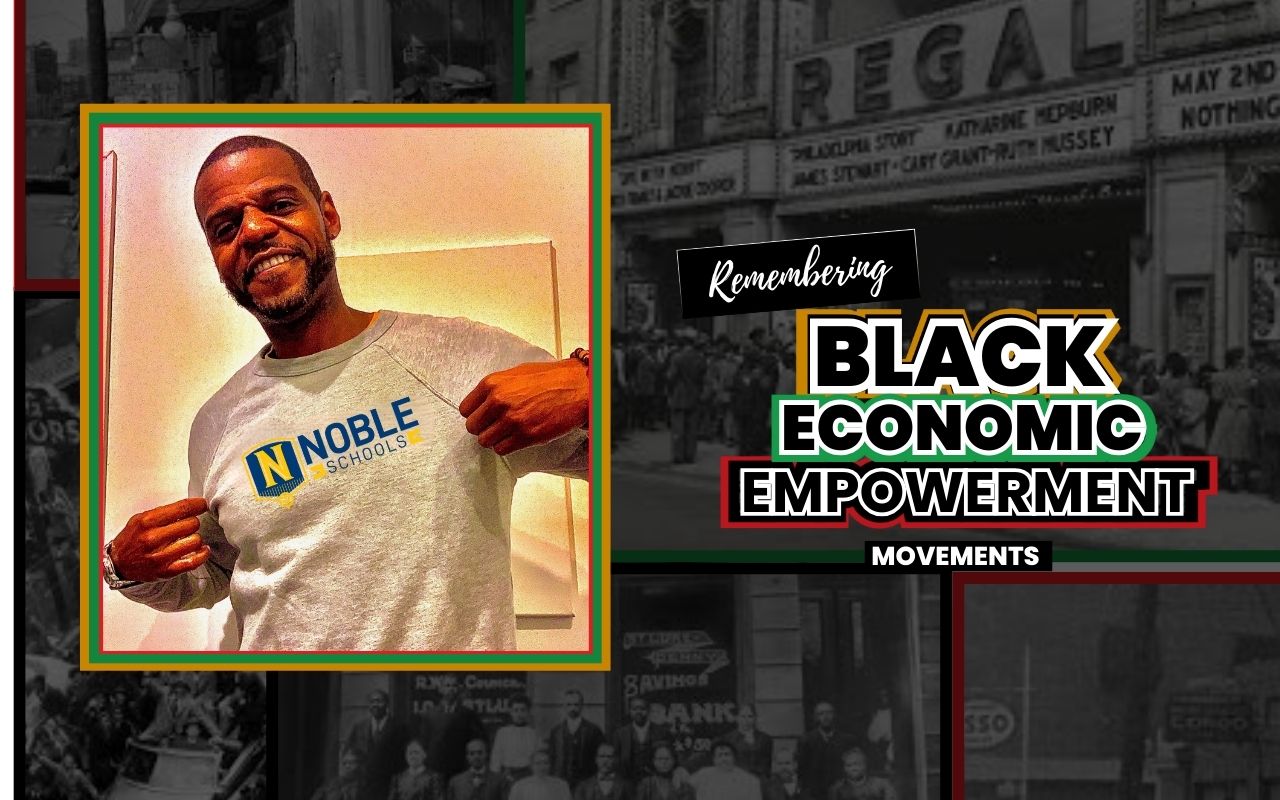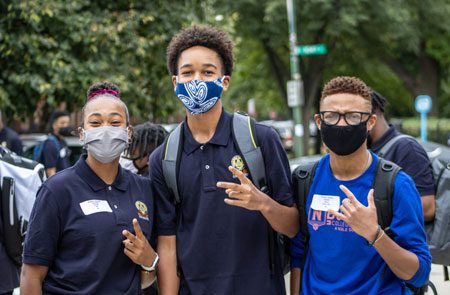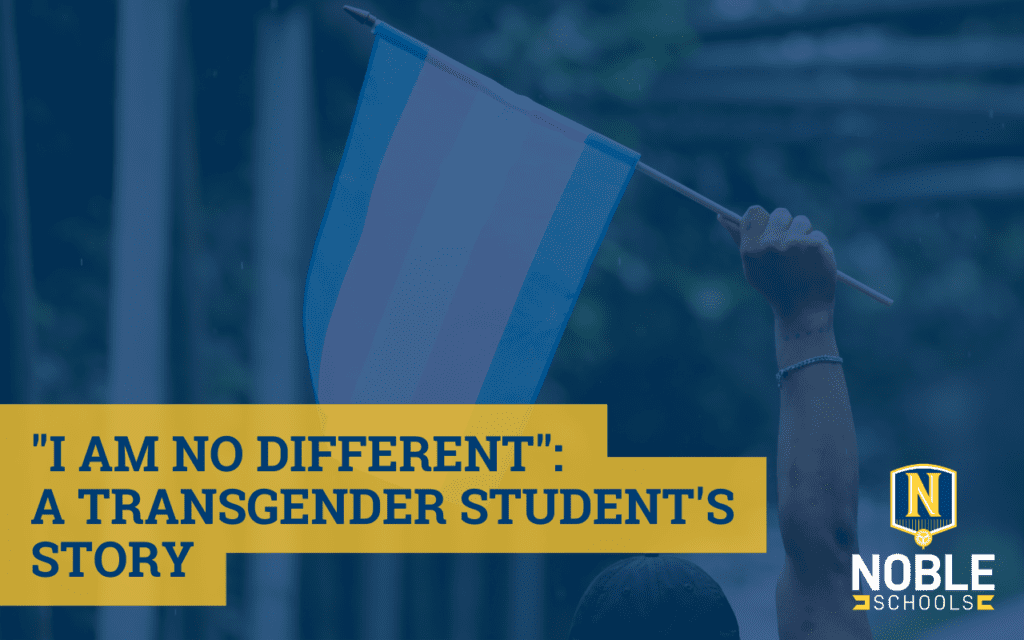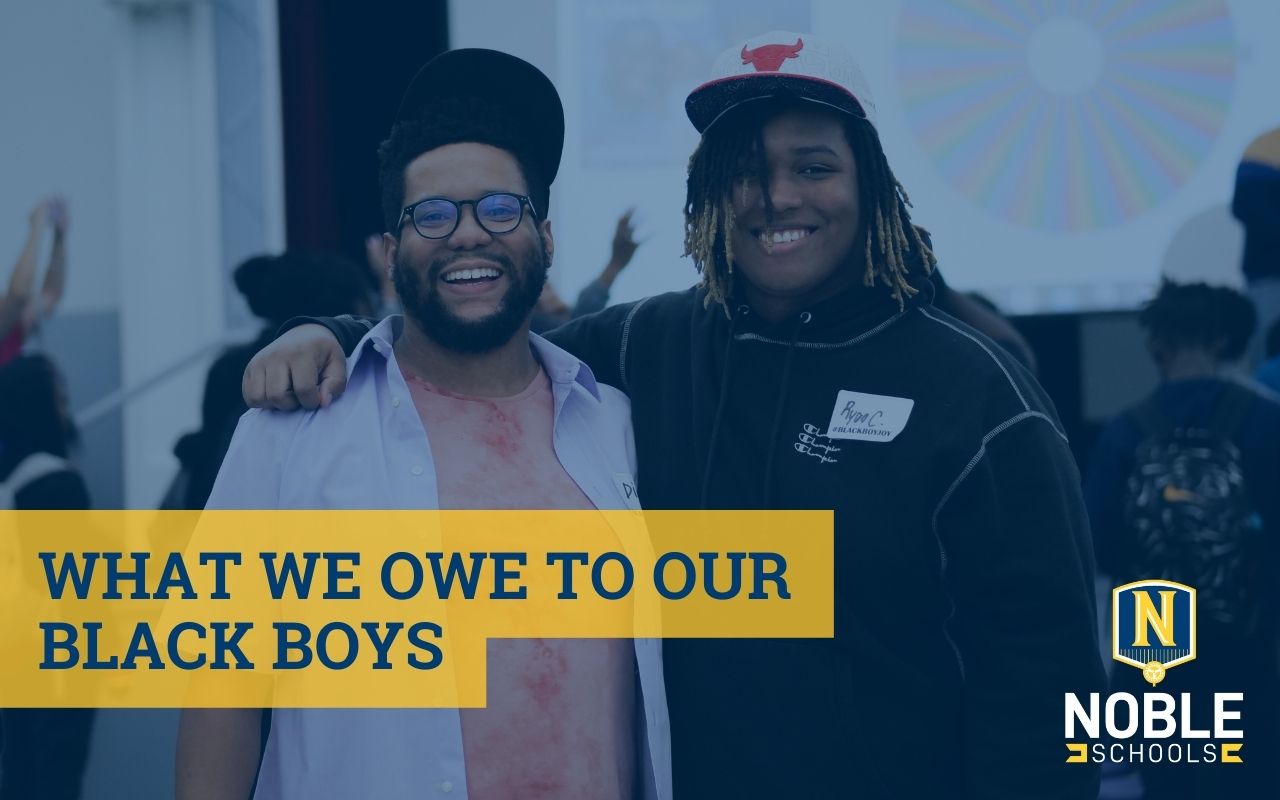
For several years, Black students have faced suspensions, explusions, and other exclusionary discipline practices in U.S. schools at higher rates than their peers (American University report, Brookings report). Our Black boys* have received the brunt of it – ultimately leading to their overrepresentation in the school-to-prison pipeline with every one out of 11 young Black men being incarcerated (Stanford Center on Poverty and Inequality). Our Black boys have also seen some of the worst academic and college outcomes (University of Texas).
* WHY WE CHOOSE TO SAY “BLACK BOYS”
The use of the term “Black boys” to describe our students is intentional in this article. Oftentimes, Black boys are forced into adulthood and this term is an attempt to honor their innocence.
For years, U.S. schools have been sending a message to our Black boys that they don’t belong and they don’t matter. Noble Schools has not always been the exception.
We have looked at data from previous school years and seen that our Black boys didn’t feel like they belonged. We have seen that they have had the worst educational outcomes more than any other group of students – lower GPAs, lower college matriculation, overrepresentation in exclusionary discipline, and more.
Noble has been actively trying to change the inequities in our students’ experiences for the past few years. We have changed the way we do discipline at our schools. We have invested more in our Diversity, Equity, and Inclusion work and changed our academic and promotion policies. We are also being transparent in our process by sharing how we are trying to build antiracist schools through our video podcast — “Changing the Course: Building An Antiracist Education” (Watch/listen to a few episodes to learn more about Noble’s anti-racism work).
But the work doesn’t stop there. There is so much more we have to do and so many more ways we have to grow and change to support our Black scholars.
As a continuation of that work, Noble Schools is kicking off three big events this school year to celebrate and acknowledge our Black boys and men. Already, our Black male scholars are sharing joy and community with each other as we launched the first of the three events: Black Boy Joy Back-to-School Socials.
Some of the highlights from Black Boy Joy socials at different campuses.
These spaces for our Black boys to connect and celebrate together are happening across all of our campuses through October. Later this school year, we’ll also launch our other two events: “Black Excellence: A Recognition of Black Men at Noble” for our Black male staff and “Black Boys Heal: See Me, Hear Me”, an event to bring awareness to the mental health of our Black boys and men.
A lot of folks are asking: Why are we doing these events? Why now? What about our other scholars and staff?
Well, it all started with the work of our Black Scholars Experience Working Group and the findings they discovered about the school experiences of our Black boys.
HOW WE GOT HERE
In 2020, when we delved more deeply into our anti-racism work, one area we particularly wanted to explore was the experiences of our Black boys. We were often seeing that our Black male scholars were overrepresented in the students who received exclusionary and punitive discipline like out-of-school suspensions. The Black Scholars Experience Working Group was formed to study this and craft recommendations based on their findings. The group was composed of staff members from across our campuses and included student participants as well.
After almost four months of research, data review, and analysis of Noble’s policies and practices, the group released this final report with their data and recommendations. What they found confirmed our perception:
- In 2019, 40% of the students who were held back a year were Black boys
- In 2020, Black male students were twice as likely to get detention or be expelled at Noble
- In 2020, 41% of expulsions were Black boys
- In 2020, Black male scholars with IEPs (Individualized Education Plans) were 2-3 times more likely to receive out-of-school suspensions
Not only did we see them overrepresented in punitive discipline, but we saw that their academic outcomes were the worst compared to other demographics; they had lower GPAs, test scores, representation in honors and AP classes, and higher education matriculation. We’ve also seen Black boys leaving our schools at a higher rate than any other demographic for the past decade.
“The numbers show it,” added Emmanuel Jackson, a college counselor at Muchin College Prep and former member of the Black Scholars Working Group, “Our Black scholars are struggling. They need as much support as possible.”
It was clear that we had failed our Black boys. It was also clear that we needed to focus our efforts on ways to make our schools a safe, supportive community for them.
The working group made several recommendations for how to do so. Those recommendations led to this year’s events that were created by another committee called the Black Boys Collaborative.
THE BLACK BOYS COLLABORATIVE
One of the first things that spawned out of the Black Scholars Experience Working Group was Norma Gutierrez Castro’s position – Assistant Director of Student Experience at Noble Schools.
“From their work together came my job and then the initiatives that we’re doing now,” Gutierrez Castro said, “My goal is to continue iterations of that group so that we can continue to work on programming for our Black boys.”
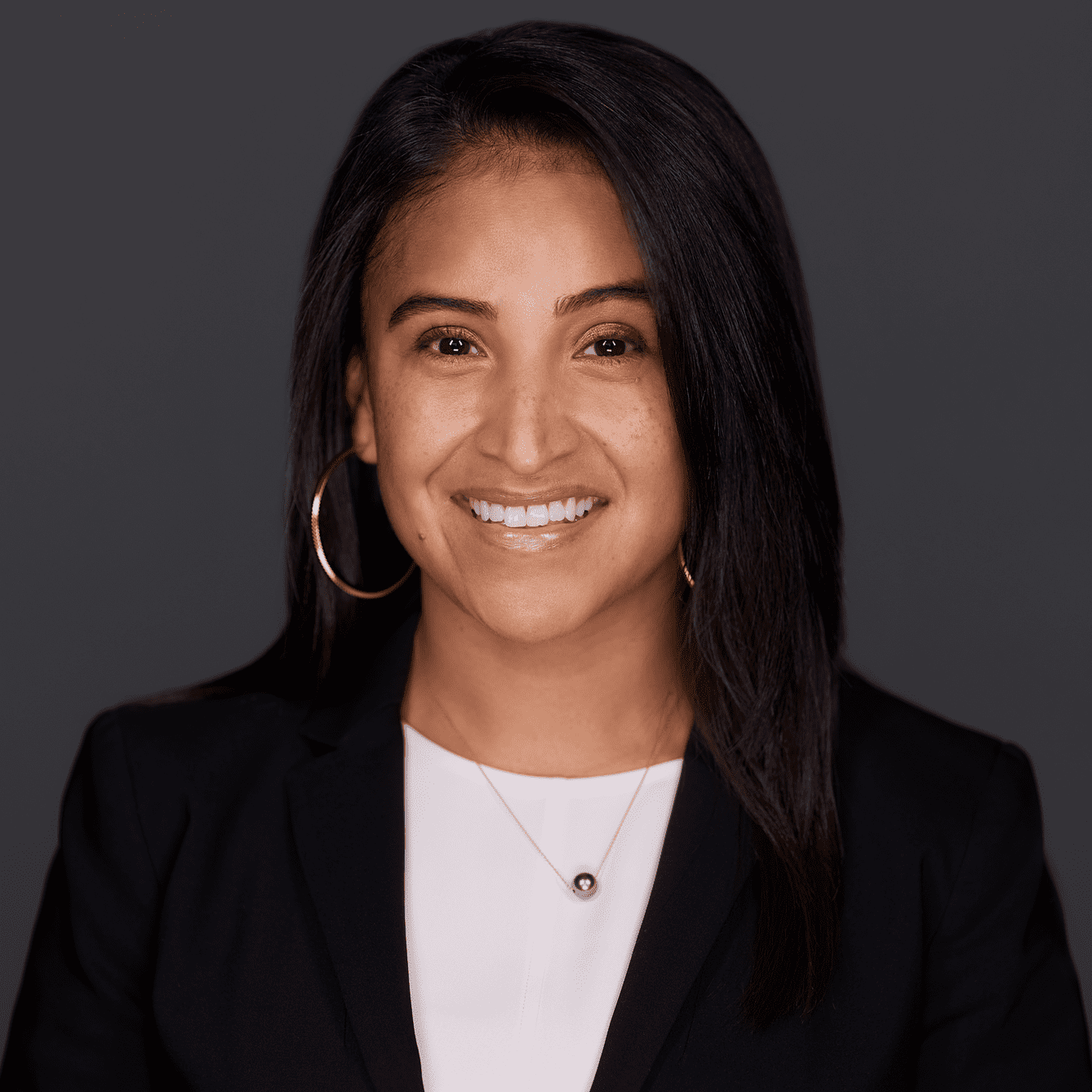
Headshot
Norma Gutierrez Castro, Assistant Director of Student Experience at Noble Schools
This past year, Gutierrez Castro created the Black Boys Collaborative. The Collaborative is a group of staff members across our campuses who were paid a stipend to work on specific projects to advance our goal of improving the school experience for our Black boys.
The group focused on building out this year’s three events based on the school culture recommendations of the working group. These recommendations were to build community among Black male students and staff and to provide our Black boys with specific programming to better support their needs.
The Collaborative divided members into smaller committees to work on each of the events.
Two members of the Collaborative – Jackson and Kameshia Ward, the Dean of College & Career Counseling at Hansberry College Prep – served on the committee that planned the Black Boys Heal: See Me, Hear Me events. They talked about why they chose to join the group.
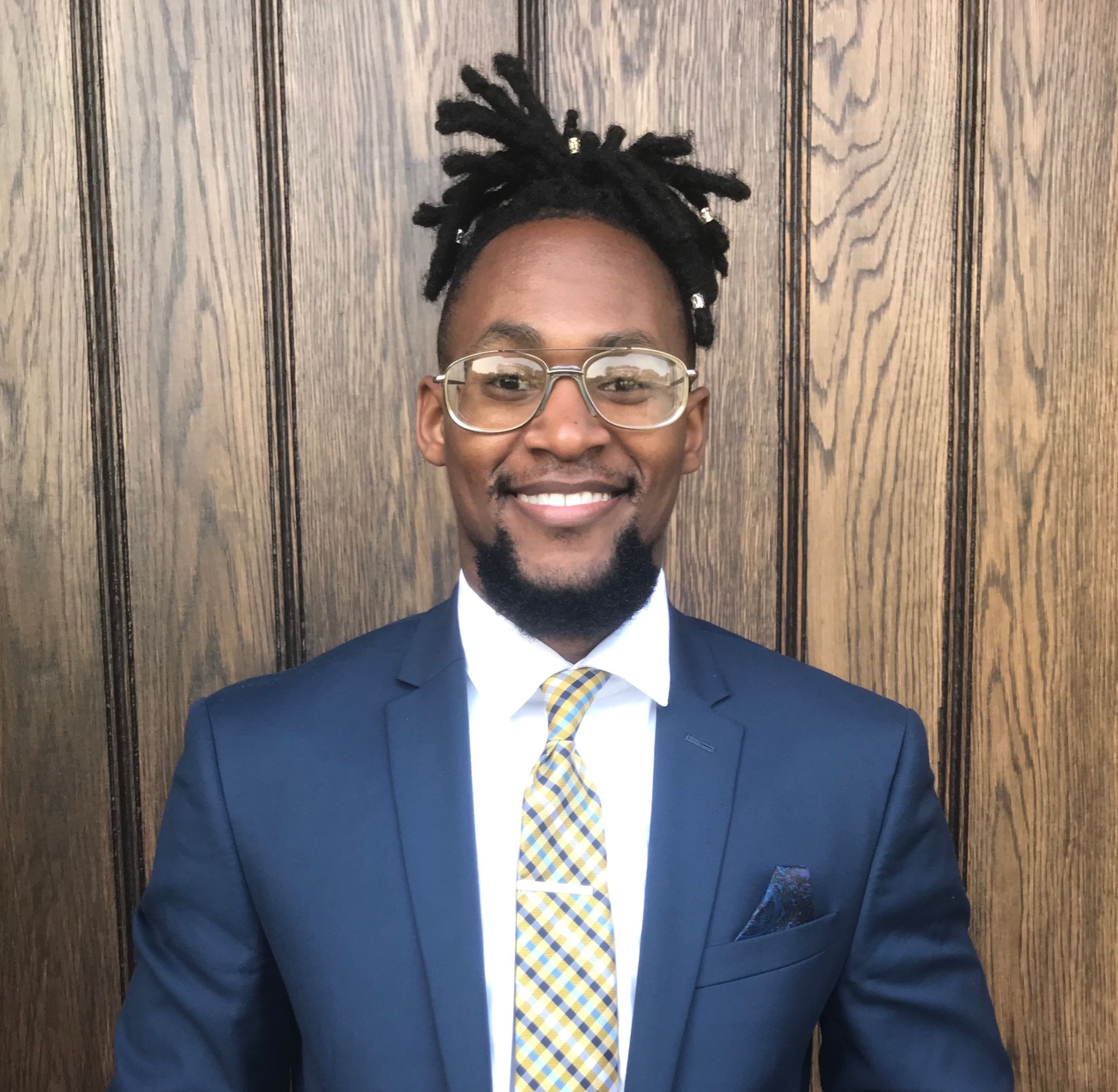
IMG-1023
Emmanuel Jackson, College Counselor at Muchin College Prep
“I knew that I had to do my part because I saw some of the challenges that our Black students, our Black boys, were facing,” Jackson said, “ I knew that I had to apply and be a voice for our Black male scholars, particularly because I am a Black male and have been a Black male scholar in the past.”
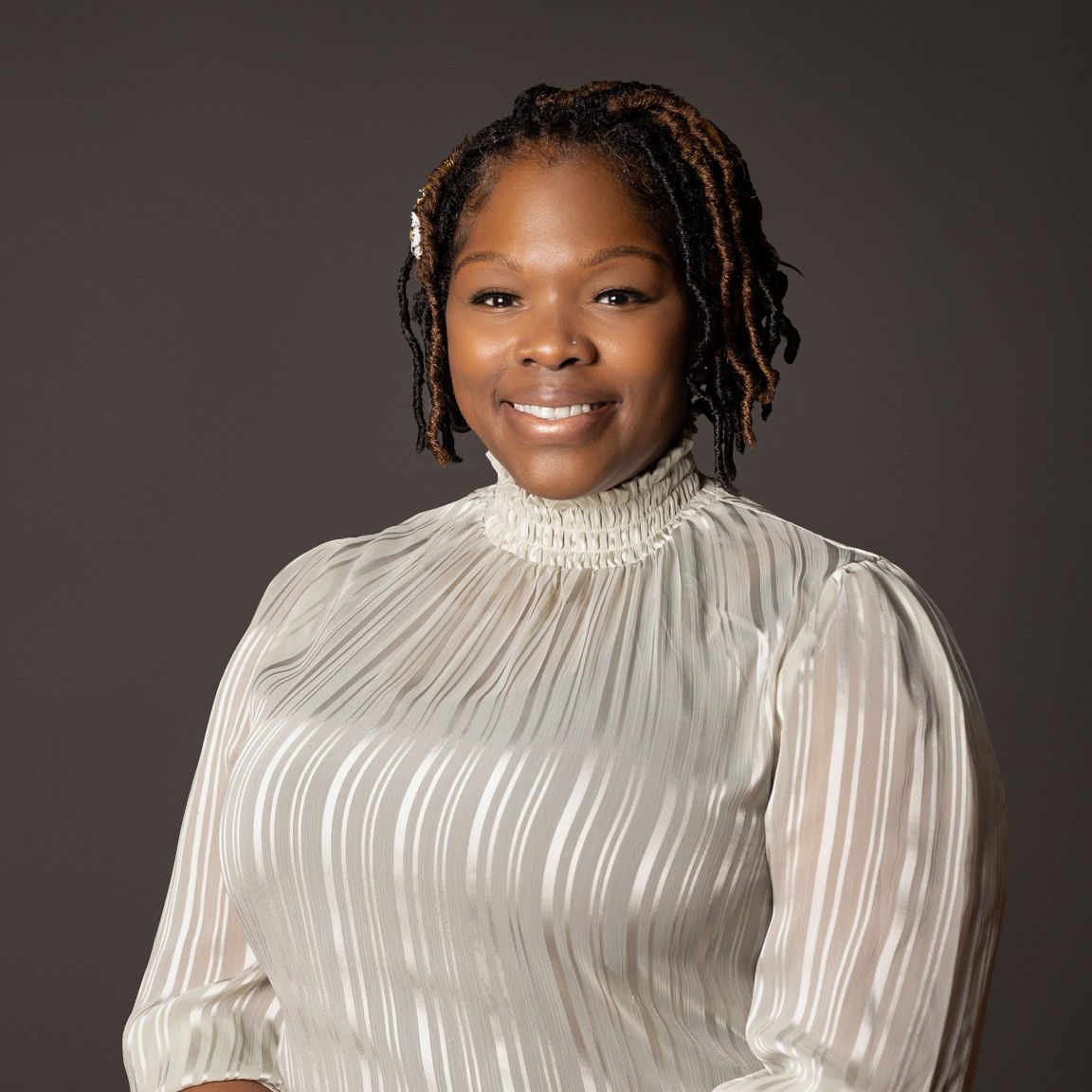
FellowHRes_Ward, Kameshia
Kameshia Ward, Dean of College & Career Counseling at Hansberry College Prep
As for Ward, she treasures the time she spent with her two advisories of Black boys at Hansberry. For her, this work is a way to care for and honor them.
“Seeing some of them either not make it through the four years or not be able to graduate from Hansberry were painful moments for me. They grieved my spirit, they grieved my heart,” Ward said, tears in her eyes, “I also have the immense luxury of being a parent to two amazing boys. I just feel that I need to give to the students I serve the same thing that I would hope other educators would give to my own children.”
Both Ward and Jackson were also deeply involved in their respective campuses’ Black Boy Joy events, many of which have already kicked off this year.
BLACK BOY JOY AT NOBLE SCHOOLS
“Some of the data has shown us that our Black boys don’t feel like they belong at Noble,” Gutierrez Castro said.
The Black Boy Joy socials were designed to help create better sense of belonging and community among our Black boys.
“There are so many different aspects that go into a sense of belonging, but one of them is feeling seen and valued,” Gutierrez Castro said, “So, the first thing was just ensuring that we celebrated our boys and that we focused on the joy that they bring and who they are.”
Another aspect, Gutierrez Castro said, was to create a space for our Black boys to be in community with people who look like them and identify in some of the ways that they do.
“That’s why it’s a social, as opposed to a different type of formal programming. It’s ensuring that they are building community not just between themselves but also among them and Black male staff members,” Gutierrez Castro said.
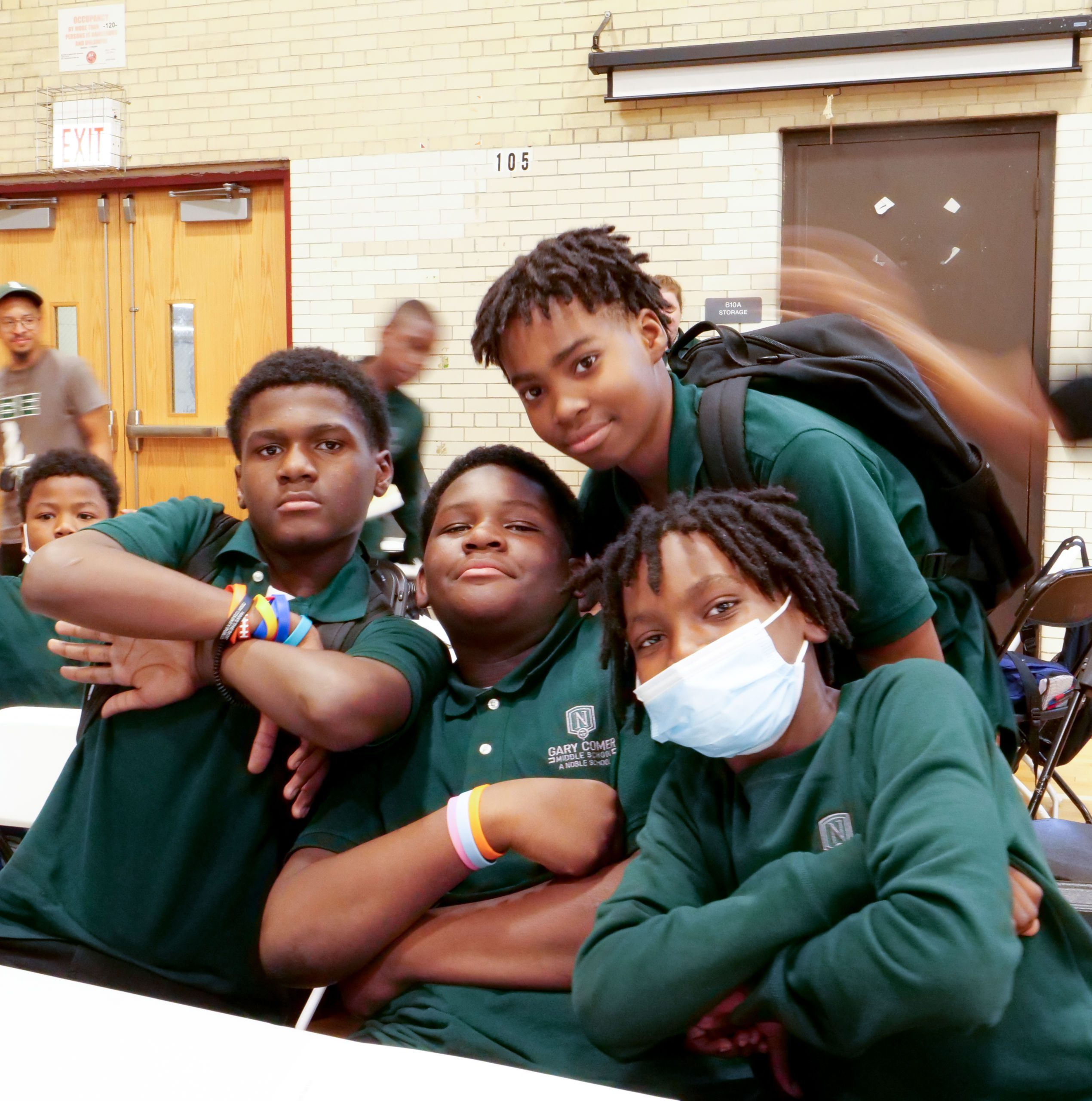
P1010502
Middle schoolers at Gary Comer Middle School hang out and connect at their Black Boy Joy social.
The socials that kicked off during September were full of both joy and community building. Black boys and men at Noble had a chance to just dance, talk, and celebrate as their full selves. Scholars participated in fun games and raffles for TVs, VR headsets, and Jordans. Community partners like CHAMPS Mentoring came to run a panel. Black male staff, Noble alumni, and influential figures in Chicago showed up to talk with our students about navigating the world as a Black man.
At Ward’s campus, Hansberry College Prep, Chicago Bulls player Javonte Green and former NFL player Pierre Thomas hung out to talk with our Black boys.
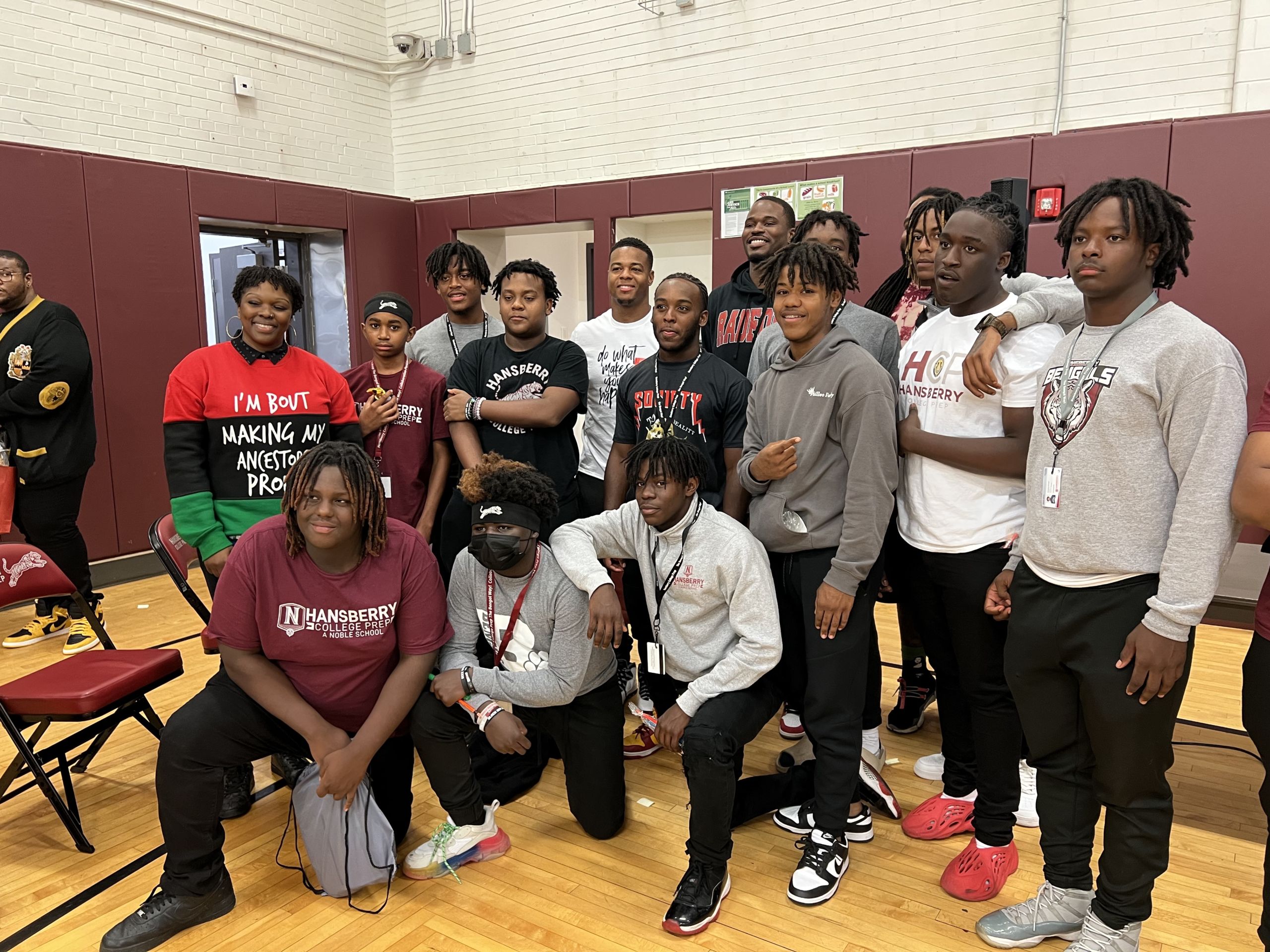
IMG_0266
Ward and some of her students at Hansberry College Prep pose for a photo with Chicago Bulls player Javonte Green and former NFL player Pierre Thomas.
Ward says she feels fortunate to be one of the people that led the effort for this event at her campus.
“For this specific event, I hope that our students felt celebrated. I also hope that they left knowing what our commitment is to them as Black male students,” Ward said, “I hope that they know Hansberry is a safe space for our Black boys. And I hope they know that the network also wants to ensure that Hansberry is a safe space for them as well.”
Muchin College Prep, Jackson’s campus, will hold their Black Boy Joy social later this month. Jackson hopes the event will greatly impact our Black boys’ school experience.
“I think that having such a unique space at school to be in solidarity with people who look like them can do huge things for how they approach school, how they see school, and how they build their community at school,” Jackson said.
Jackson and Ward are also excited about the other two events:
“I’m really excited! I think that, at least for Hansberry, I’m excited because I feel like, for all of the staff members here, it’s been a long time coming. We’ve been wanting to do something like this,” Ward said, “Our students are even more excited because they see the necessity in such events.”
“All these things are helping to build bridges and build supports for our Black scholars,” Jackson said, “Some of the stuff is very simple, it’s very basic, but I really do believe that they’re building the foundation for what is to come.”
THIS IS JUST THE START
While we’re excited about the events this year, this is just a small part of the work that we are doing to create equitable and positive school experiences for our students. Noble Schools will continue to create opportunities for our Black boys to excel in school. We will also be looking at programming to support other students and staff who face inequities in education, like our Black girls.
“I’m really excited about how this is growing to be more than just an event at a campus but a culture we’re creating across our network,” Gutierrez Castro said.
Our goal is that, in the next few years, we will see the results of this work for our Black boys. We hope to watch their academic success grow. We hope to see the exclusionary discipline gap between our Black boys and other students shrink. And we hope to hear from our Black male scholars, personally and through our biannual Student Experience Survey, that they feel like they belong.
“I really just hope and pray that this is the start of something extraordinary – that people can see that, at Noble, we’re doing good work,” Jackson said, “I hope that other Black male scholars and families will see this stuff and know that Noble is the place to be if you have a Black scholar. They’re going to feel safe, they’re going to feel supported, they’re going to be affirmed.”

